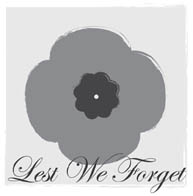P.O.V.
Why remember?
November 11 will be observed as Remembrance Day, with Monday the 12th a statutory holiday in most of Canada, though not in Quebec—as a respectful reminder that most Quebecois had no pleasant memories of the Great War that ended at 11:00 a.m. on November 11, 1918. It is remembered as a time when the shallow alliance that made this Confederation possible was ripped and trampled.

TZIGANE
The wartime frenzy of the English-speaking majority prevailed. Quebeckers felt isolated in their own country and their young men were ordered to report for service in a war that meant little or nothing to them.
The resulting Quebec-Canada bitterness was not the only heritage of the First World War. By 1918, Ottawa's government was close to bankruptcy, more than 60,000 Canadians had died and 30,000 widows and orphans claimed pensions. As many as 120,000 veterans returned with crippling mental or physical injuries. There were other memories.
Our wartime government had exploited women's patriotism by granting soldiers' wives, mothers and sisters the vote, confident that they would support conscription. When that test proved successful, almost all women gained a federal vote by 1918. In Quebec, in contrast, nationalist women were persuaded that their claim to vote had been tarnished by Ottawa and that it should proudly be sacrificed—as it was until 1940 and the Second World War had broken out.
The earlier war taught us some lessons. Our losses this time were 44,000 out of a population of 11 million. We almost avoided conscription. Six long years of full employment moved millions of Canadians from poverty to self-sufficiency. At war's end, veterans could claim up to six years of free education, enough to turn a Depression-era drop-out into a teacher, a lawyer or a doctor. The combination of education and affluence helped melt the vicious bigotry and racism that had long characterized our history and civil society. "I've been rich and I've been poor," said Sophie Tucker. "Rich is better."
McGill University was a full partner in Canada's wars. McGill's contingent of the Canadian Officers' Training Corps (COTC) trained students to lead Canadians in battle on land, sea and in the air. McGill hospitals treated the victims of war. One of our great principals, Sir Arthur Currie, had led the Canadian Corps to its greatest victories in 1918. In the Second World War, McGill scientists helped create the atomic bomb. One of our law professors helped craft the Universal Declaration of Human Rights. Another principal, Cyril James, helped craft the policies that transformed Canadians into the world's second-richest people after 1945.
Do we owe a thought to those who offered their lives for Canada and the world? Should we reflect on the evidence that a third world war would almost certainly annihilate our species? When I came to McGill in 1994, Remembrance Day had long been forgotten. Some students asked me for help remembering it. I recruited a piper from Montreal's historic Black Watch and sorted out the significance of the Last Post and the Reveille. We met at the memorial to McGill's war dead in the foyer of the Arts Building. Students took charge. A few years later, they moved outside to the Roddick Gates.
This year, Remembrance ceremonies will be held at the Macdonald Campus. Some day, we might even move to McGill's own Memorial Hall in the Currie Gymnasium on Pine Avenue. Unfortunately, this beautiful hall of memories was forgotten long ago.
History is another word for experience. Only remembering it can make you wiser.
Desmond Morton is McGill's Hiram Mills professor of History. The son of a Brigadier General, Morton spent ten years in the Canadian Army before beginning his teaching career.

